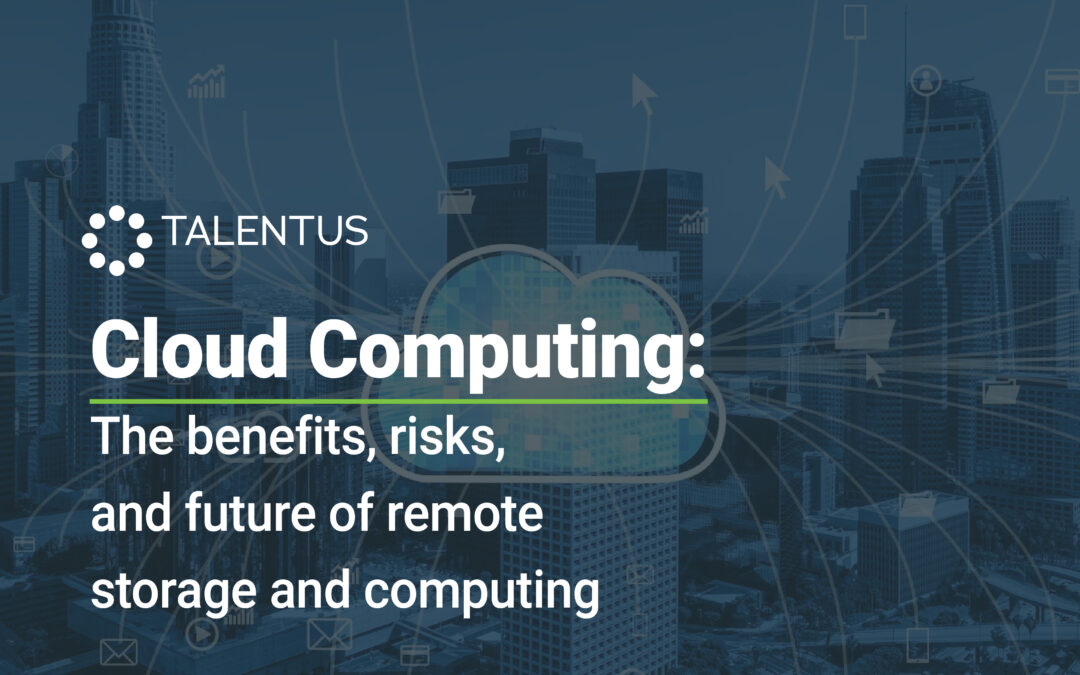Cloud computing has revolutionized the way businesses and individuals store and access data, transforming the landscape of remote storage and computing. By leveraging the power of the internet, cloud computing offers numerous benefits while also introducing certain risks. This article explores the advantages, potential risks, and the future of remote storage and computing.
One of the key benefits of cloud computing is its scalability. Users can easily scale their storage and computing resources up or down based on their needs, eliminating the need for expensive infrastructure investments. This scalability allows businesses to adapt quickly to changing demands and empowers startups and small businesses to compete on a level playing field with larger organizations.
Another significant advantage of cloud computing is its accessibility. With data and applications stored remotely, users can access their files and software from anywhere with an internet connection. This flexibility promotes collaboration, enhances productivity, and enables remote work, which has become even more crucial in the wake of the COVID-19 pandemic.
Furthermore, cloud computing offers robust data backup and disaster recovery capabilities. By storing data in the cloud, businesses can safeguard their valuable information from hardware failures, natural disasters, and other unforeseen events. Cloud providers employ redundant systems and backups to ensure data integrity and availability.
However, along with the benefits, cloud computing also poses certain risks. One of the primary concerns is data security and privacy. Entrusting sensitive information to a third-party service provider raises questions about data breaches and unauthorized access. However, reputable cloud providers implement stringent security measures, including encryption and authentication protocols, to protect user data.
Another risk associated with cloud computing is the reliance on internet connectivity. Users heavily depend on a stable internet connection to access their data and applications. In cases of network outages or disruptions, users may face difficulties in accessing critical information. However, advancements in networking technologies and the increasing availability of high-speed internet are mitigating this risk.
Looking towards the future, cloud computing is expected to continue its rapid growth and evolution. The expansion of 5G networks will further enhance the accessibility and performance of cloud services. Edge computing, a paradigm that brings computing resources closer to the end-user, will reduce latency and enable real-time processing of data. This advancement will have profound implications for emerging technologies such as the Internet of Things (IoT) and artificial intelligence (AI).
Additionally, the field of cloud computing is witnessing the rise of specialized cloud services tailored to specific industries and use cases. Healthcare, finance, and other sectors with stringent regulatory requirements are adopting cloud solutions designed to meet their unique needs. This industry-specific cloud adoption will foster innovation and drive further advancements in remote storage and computing.
In conclusion, cloud computing has brought significant benefits to the realm of remote storage and computing. Scalability, accessibility, and data resilience are just a few of the advantages that have revolutionized the way businesses operate. While risks such as data security and internet dependency exist, technological advancements and robust security measures continue to address these concerns. With the future prospects of 5G, edge computing, and industry-specific cloud services, cloud computing is poised to play an even more prominent role in the digital landscape, transforming businesses and shaping the way we store and access data.

